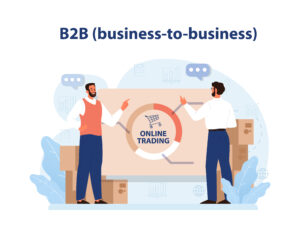Entering the automotive ecommerce arena offers two primary strategies: you can either start selling auto parts through established third-party marketplaces or create your own ecommerce site to directly engage with customers.
Opting to sell through major online retailers like eBay or Amazon can be cost-effective, sparing you the expense and effort of developing and managing your own website. However, this approach often limits your ability to customize interactions, constrains branding opportunities, and may hinder the scalability of your business.
In contrast, operating your own ecommerce site can provide substantial benefits. It allows you to craft a unique and engaging storefront, enhance your brand’s visibility, and cultivate stronger relationships with your customers. The critical challenge is selecting an auto parts ecommerce platform that not only meets your current operational needs but also supports your long-term growth ambitions.
This article will support your decision-making process, highlighting crucial factors to consider when evaluating potential platforms and discussing the specific functionalities that an ecommerce solution for auto parts should offer to effectively serve the industry’s unique demands.
Understanding Your Business Needs
Before diving into the features of any ecommerce platform, it’s important to assess your business’s specific needs. Consider the size of your inventory, your target market, customer service demands, and your long-term business goals. An ideal auto parts ecommerce platform should align with the core specifics of your business, offering the necessary tools to support your operations efficiently.
When selecting an ecommerce platform for auto parts, consider these critical questions to ensure the platform suits your business needs:
- What automotive-specific tools does the platform offer?
- How much customization is possible with the platform to fit your unique requirements?
- What type of support and customer service does the platform provide?
- Is the platform capable of managing high traffic volumes without compromising site performance?
- Does the platform include SEO-enhancing features to help improve your search engine visibility?
Top 5 Essential Features to Consider When Choosing an Auto Parts Ecommerce Platform
1. Tailored Automotive Functionality
Choosing the right auto parts ecommerce platform means selecting one that offers specialized features tailored specifically for the needs of the auto parts industry. These functionalities not only enhance the user experience but also streamline your operations. Key features to look for include:
- Year Make Model (YMM) Filter: This feature is essential for customer convenience, allowing users to quickly filter parts based on their specific vehicle make, model, and year, ensuring they find compatible parts effortlessly.
- VIN Lookup: A VIN lookup tool enables more precise searches by using the Vehicle Identification Number, providing a fail-safe method to ensure that the parts listed are the exact match for the customer’s vehicle.
- Product Bundling: This functionality allows you to group related products together, which can be particularly useful for promotions and kits. It not only enhances the shopping experience by making it convenient for customers to purchase related items together but also increases the average order value.
- Extensive Catalog Scalability: The platform should be robust enough to handle large volumes of product data efficiently. This capability is crucial for supporting a wide array of SKUs and complex inventories typical in the auto parts industry, without any performance degradation.
- Dropship Integrations: Efficient dropship integrations are key to streamlining the fulfillment process. By automating the link between your sales platform and suppliers, these integrations ensure that orders are placed, processed, and shipped efficiently, reducing the time from order to delivery and improving overall operational efficiency.
2. Scalable, High-Performance Technology
When selecting an auto parts ecommerce platform, it is crucial to opt for one that supports your business’s growth trajectory through scalable, API-driven technology. This foundation is essential for adapting to increased demands without compromising on performance or user experience. Key aspects to consider include:
- Robust Performance and Scalability: The ideal platform must handle high volumes of traffic and transactions smoothly, ensuring swift site performance even during peak periods. This capability is critical to avoid downtime or slowdowns that could affect sales and customer satisfaction.
- Flexible Customization: An effective ecommerce platform offers extensive customization options that allow you to tailor every aspect of your site. This flexibility is vital for aligning the platform with your unique brand identity and operational needs, enabling you to create a bespoke shopping experience that resonates with your target market.
- Seamless Multichannel Selling: Today’s automotive market requires a presence across multiple online channels. Choose a platform that facilitates seamless integration across various ecommerce channels—from your primary website to marketplaces and social media platforms. This integration should ensure a consistent and cohesive customer experience, regardless of where your customers choose to interact with your brand.
Additionally, consider a platform that integrates well with existing technologies and tools used in your business. This integration capability should extend to CRM systems, marketing tools, and analytics services to provide a comprehensive view of your operations and customer interactions. Such holistic integration will not only enhance operational efficiency but also provide valuable insights for strategic decision-making, helping to drive your business forward in the competitive auto parts market.
3. Dependable Customer Support
Navigating the complexities of an ecommerce platform can be challenging, especially when unexpected issues arise. Therefore, it’s essential to choose a platform with reliable and responsive customer support. Effective support services are crucial for quickly addressing and resolving any platform-related issues, ensuring minimal disruption to your business operations.
- Rapid Response Times: Look for a platform that guarantees fast response times. This means having a support team available to help you with any inquiries or issues as soon as they arise, preventing prolonged downtime or sales interruptions.
- Multiple Support Channels: A good ecommerce platform should offer several ways to reach support, including live chat, email, and phone. This variety ensures you can choose the most convenient method at any given time, whether you need quick answers via chat or more detailed assistance over the phone.
- Knowledgeable Support Team: The quality of support is just as important as the speed. The support team should not only be responsive but also knowledgeable about the platform. They should be able to provide expert guidance and practical solutions tailored to your specific needs and challenges.
Moreover, access to comprehensive resources such as tutorials, FAQs, and community forums can be invaluable. These resources allow you to troubleshoot common issues independently, providing immediate solutions and empowering you with better knowledge of the platform’s capabilities.
4. Optimized for Mobile Transactions
As the trend towards mobile commerce accelerates, it’s essential to choose an ecommerce platform that is fully optimized for mobile devices. This optimization is crucial for providing a seamless and responsive shopping experience to customers who prefer to browse and purchase using their smartphones and tablets.
- Mobile-Friendly Design: The platform should feature a responsive design that automatically adjusts content to fit the screen size and resolution of any mobile device. This ensures that your website is accessible and easy to navigate, regardless of the device used.
- Fast Loading Speeds: Mobile users expect quick loading times. Your ecommerce platform should be able to deliver content quickly and efficiently on mobile devices to prevent potential customers from leaving due to slow performance.
- Touch-Optimized Interfaces: Consider platforms that offer touch-optimized navigation and interfaces. These are designed for the tactile nature of smartphones and tablets, making it easier for mobile users to interact with your site’s elements, such as buttons and links.
Additionally, having features like a mobile-first checkout process can significantly enhance the user experience, making it faster and simpler for mobile users to complete purchases. This approach not only improves customer satisfaction but also boosts your conversion rates by reducing cart abandonment on mobile devices.
5. Advanced SEO and Marketing Tools
For any ecommerce platform in the automotive sector, having robust SEO and marketing tools is crucial to ensure your products stand out and are easily discoverable by potential customers online. These features are key to driving traffic to your site and converting visitors into buyers.
- Strong SEO Capabilities: Your chosen platform should offer advanced SEO features that optimize your product pages and other content to rank higher in search engine results. This includes customizable meta tags, SEO-friendly URLs, and automated sitemap updates, which help improve visibility and attract more organic traffic.
- Integrated Marketing Tools: Look for a platform that comes with a suite of integrated marketing tools. These should allow you to run and manage campaigns directly from your dashboard, including email marketing, social media promotions, and pay-per-click (PPC) advertising. Effective tools should also offer segmentation and targeting options to reach different customer groups more effectively.
Furthermore, it’s beneficial if the platform includes analytics and reporting features to track the performance of your marketing efforts. Being able to analyze customer behavior, traffic sources, and conversion rates will enable you to fine-tune your strategies and make informed decisions to boost your sales.
Choosing TotalOne for Your Auto Parts Ecommerce Needs
TotalOne stands out as the premier ecommerce solution for auto parts businesses, offering a robust platform specifically designed to meet the unique demands of the automotive industry. With a mix of advanced functionality and user-friendly design, TotalOne ensures that your business is equipped for both current operations and future growth.
Key Advantages of TotalOne:
- Specialized Automotive Features: TotalOne includes essential industry-specific tools like YMM filters, VIN lookup, and advanced catalog capabilities, all tailored to optimize auto parts sales.
- Designed for Growth: Our platform supports businesses of all sizes, providing scalable solutions that effortlessly handle increasing traffic and transaction volumes.
- Integrated Business Systems: TotalOne enhances operational efficiency through seamless integration with your existing ERP and CRM systems, creating a cohesive and streamlined business process.
- Exceptional User Experience: Focused on intuitive design, TotalOne prioritizes customer satisfaction, ensuring that managing your online store is both effective and straightforward, thereby improving the end-user experience.
By choosing TotalOne as your auto parts ecommerce platform, you not only meet your current operational needs but also position your business for sustainable growth and success in the competitive digital marketplace.
Interested in seeing TotalOne in action? Schedule a free demo today to discover how our platform can transform your auto parts business.



